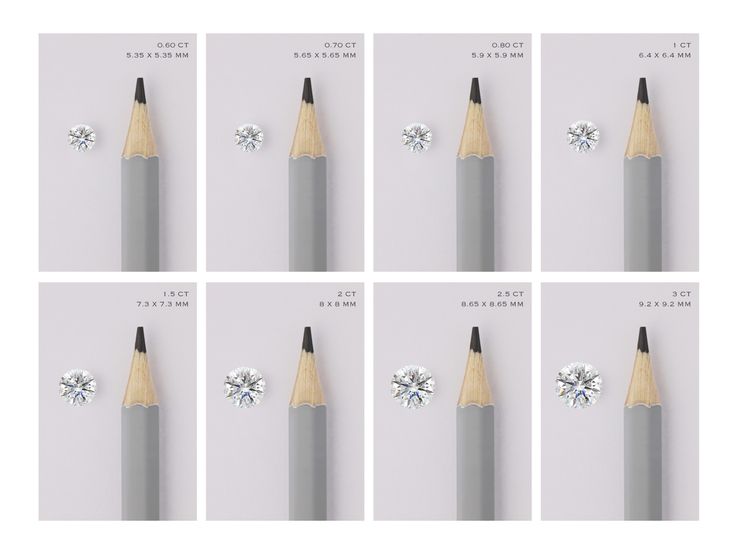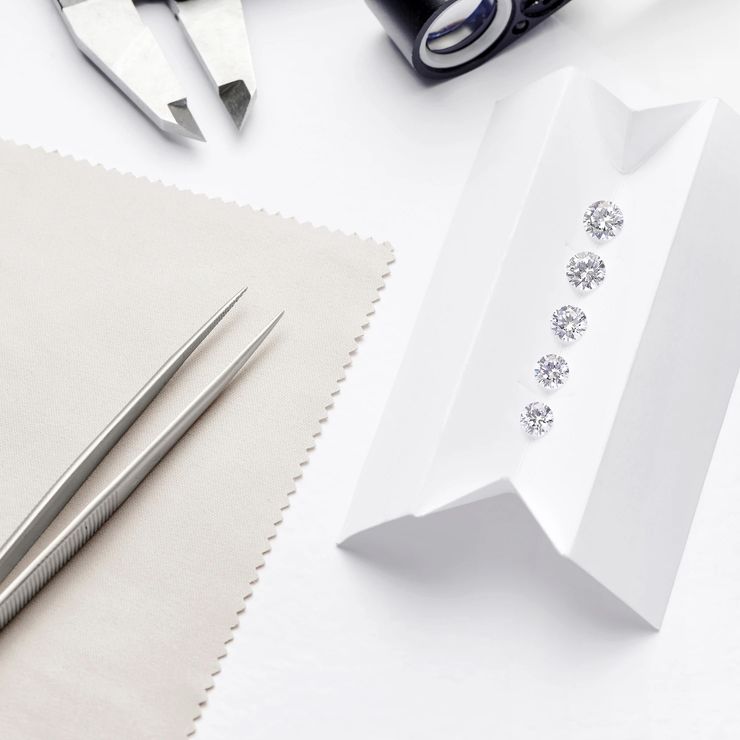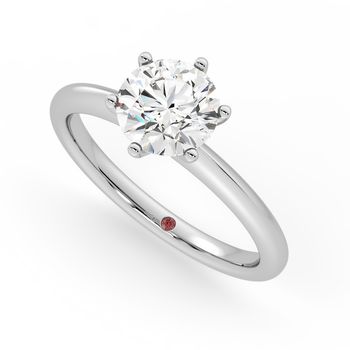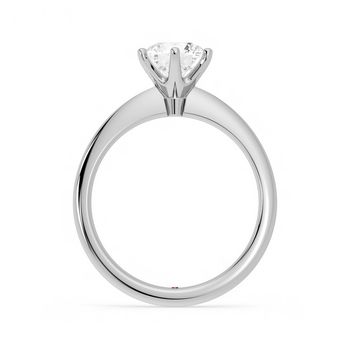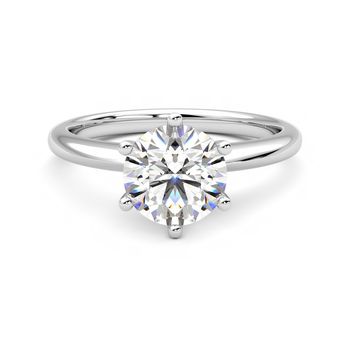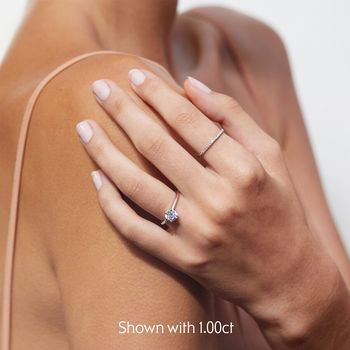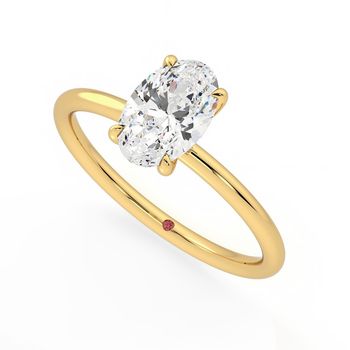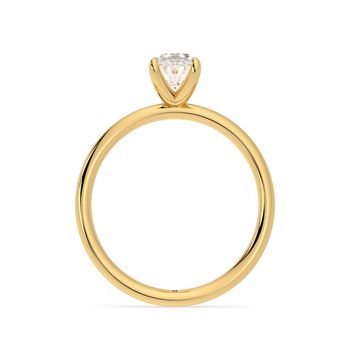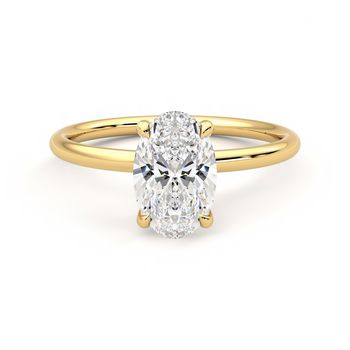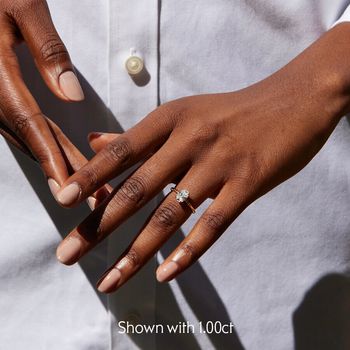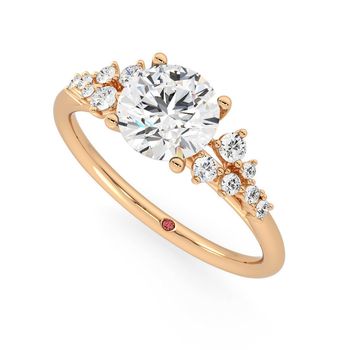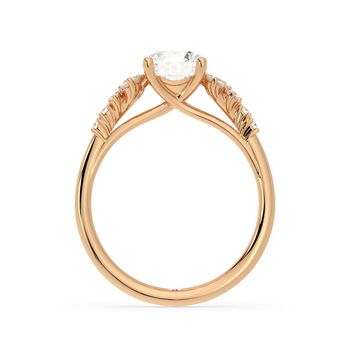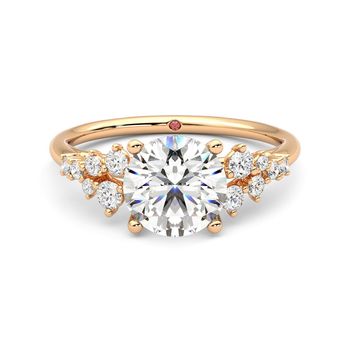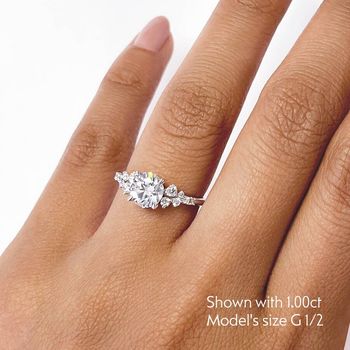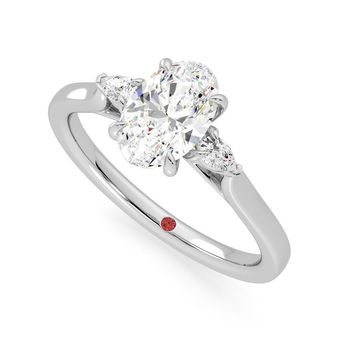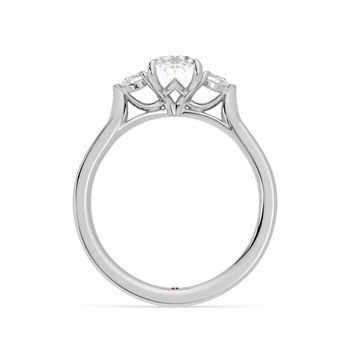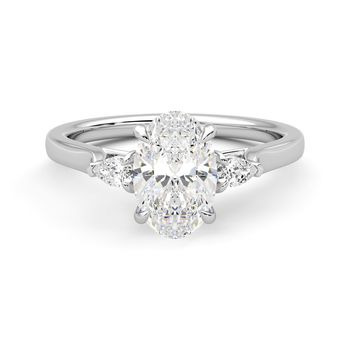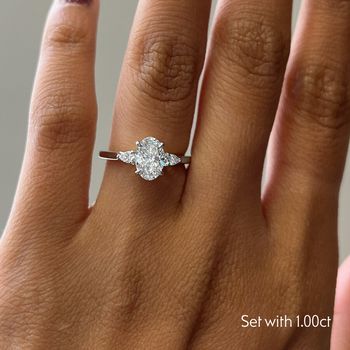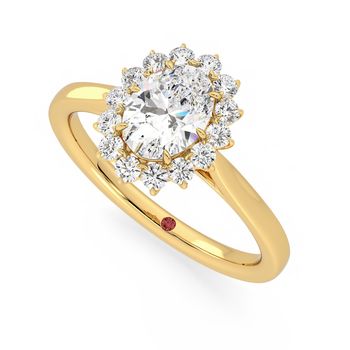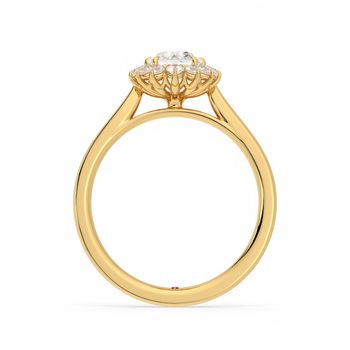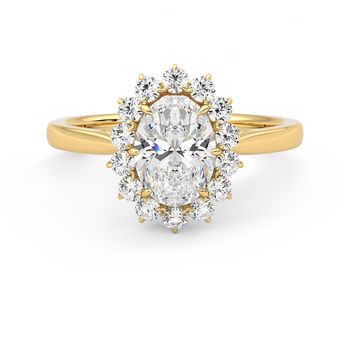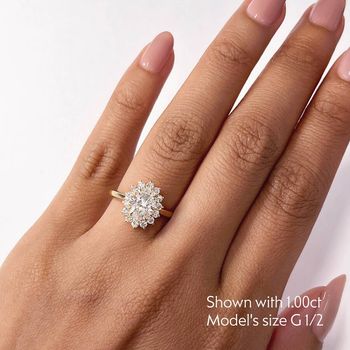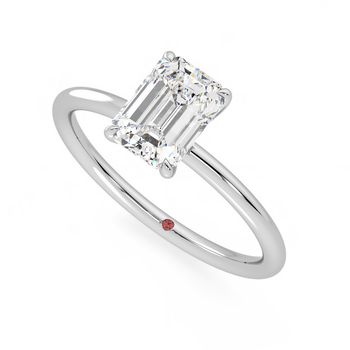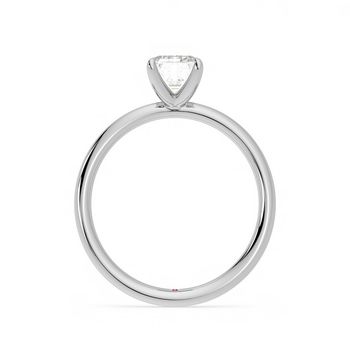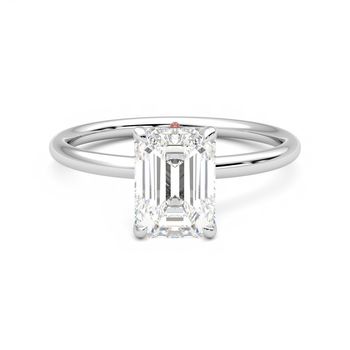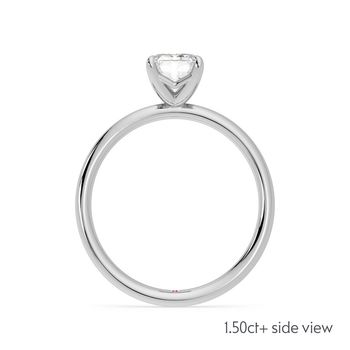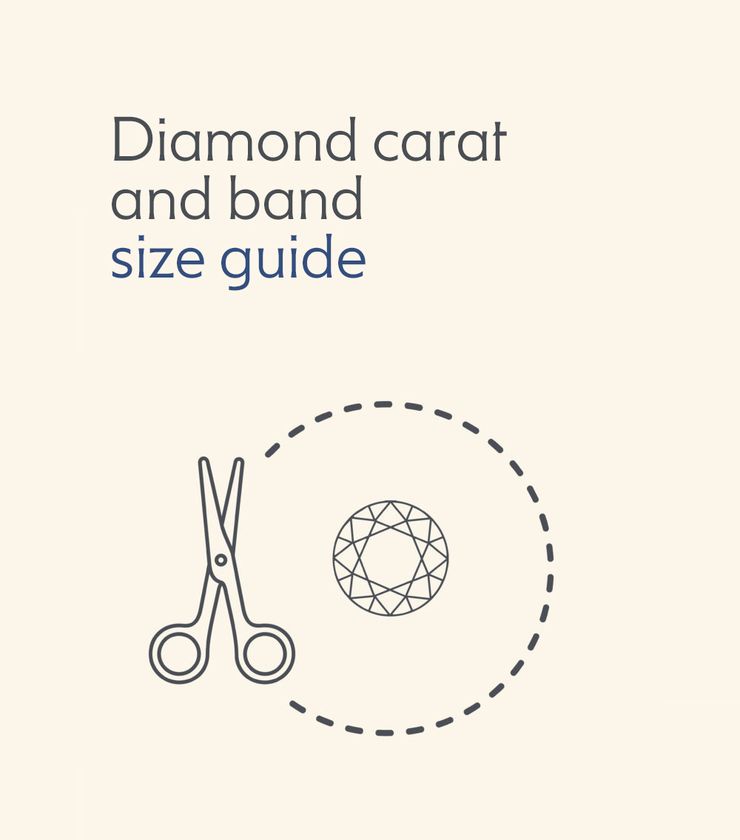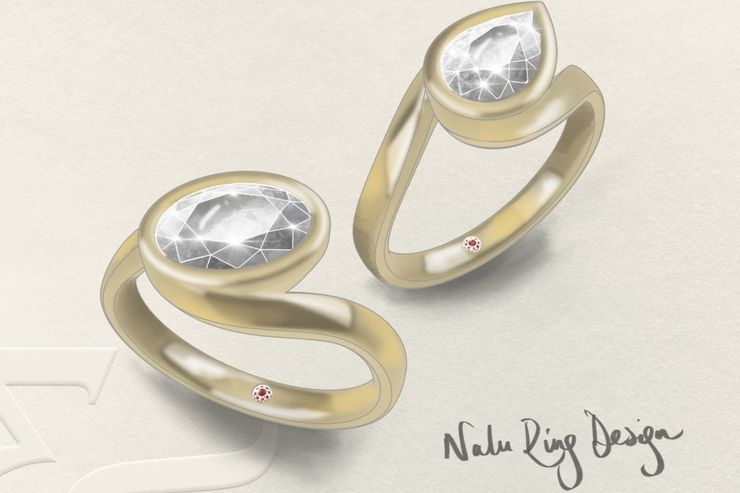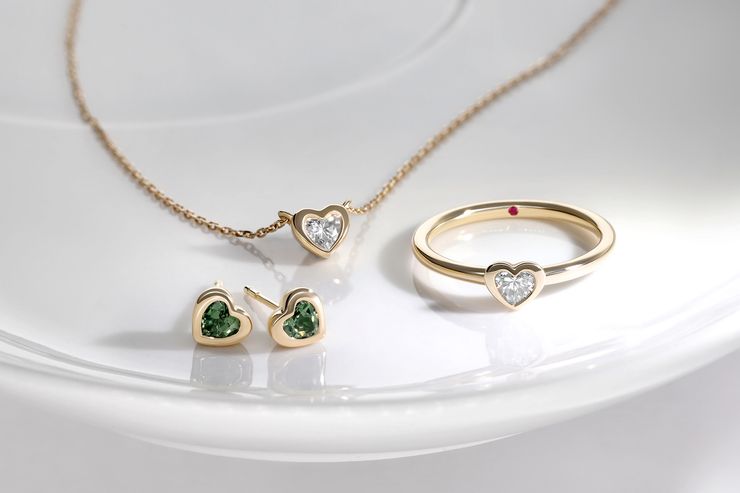What exactly is a ‘carat’?
Diamonds are measured in ‘carats’. Rather than a measurement of the diamond’s width, length, or scale, carats measure how much a diamond weighs. We use this unit of measurement because each diamond has an ever so slightly different cut (and therefore proportions) than every other diamond—even a diamond of the same shape.
And when you’re dealing with diamonds of completely different shapes—such as a cushion diamond vs a princess diamond, or a marquise vs a round—when it comes to dimension, they’ll appear totally different. You can learn more about diamond shapes here.
As such, we measure diamonds according to their weight in order to get an accurate idea of how big they really are. Because two diamonds with the same top-down surface area won’t always have the same mass. One diamond may be deeper than the other, or one might have a cut that makes it bottom- or top-heavy when viewed from the side.
But a diamond’s value and character is about so much more than just its size! We always recommend checking out our Diamond Basics page to get a full breakdown of what you need to know when it comes to technical diamond knowledge and ring design.

